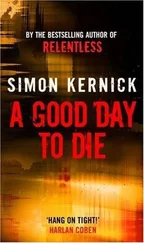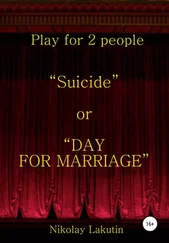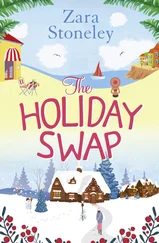Jimbo says no.
“Figure there are others?” Thomas wonders.
“I’d bet on it,” Jimbo says.
“Clinic’s a worthless outdated shambles. It’s a tear-down,” Thomas tells the sheriff, and shrugs. His father didn’t have an appetite for money. He ran on some other and more exotic alien fuel.
“I remember when they built it. Just Captain and your mother. I lent them the tools. Your mother enjoyed painting. And she was terrific with a hammer. She did the whole roof,” the sheriff said. “What was she? 17? She carried you in a big blue wicker Easter basket. She sewed the curtains. Went to Philadelphia for the fabric.”
“What were they like then?” Thomas is interested.
“Different. They stood out. Looked like they’d stepped out of a painting. Clothes all velvet and embroidered. Regal. Called themselves beatniks. They were intense. Truth is, they had crazy eyes. Both of them,” Jimbo told him.
Thomas considers their crazy eyes. “What happened?” he asks.
“People were scared. Crossed the street to avoid them. Captain so tall, your mom tiny, but feisty and mule-stubborn. First few years, Captain seemed to take hold. Then he hit the wall. Your mother twisted in the wind. Did a year of nursing school at the Con and quit. Carried notebooks of poems and threw them away. Started the theater group,” the sheriff remembers.
“You were in that?” Thomas is surprised.
“Thought I could meet women,” Jimbo admits. “Can’t meet them in church or a bar.”
The dermatologists from Philadelphia sit on the floor with the twins. They’re playing Monopoly. Lily and Sam have managed to brush their hair and rub rouge on their cheeks. Samantha has removed her veil. They’re going to meet halfway in Briarwood for Sunday brunch. They’re sisters now. Lily passes a plate of cheese and grapes around the room. Sam pours lemonade into paper cups.
Thomas squats beside his half-brothers and half-sisters. He notices the twins have all the hotels on the board.
“See much of him?” Thomas directs his question to the older boy, Joshua, the dermatologist with his father’s name.
“Hardly saw him after he turned pro,” Joshua said.
“We’d watch him on TV,” Justin, the younger brother, offers.
“So what you’d do together?” Thomas wants to know.
“Went to Red Lobster in Oakdale mostly,” Joshua says.
“We went to a movie once,” Justin says. “And we played Frisbee.”
“Maybe twice,” his older brother says. It’s a correction.
Thomas nods and walks back into the kitchen. The sheriff hands him a beer.
“We did Cat on a Hot Tin Roof . That’s a play by Tennessee Williams,” Jimbo says.
“Right,” Thomas nods.
“After a week, your mother hung it up. Said she didn’t want to live inside someone else’s architecture,” Jimbo remembers.
“What did she mean?” Thomas asks.
“She could see all the pieces. And it lost its meaning. She saw the whole and the ending,” Jimbo explains. “Captain the same way.”
“Was she depressed? Maybe angry?” Thomas wonders. “Just seventeen with a baby? She resent it?”
“Captain was a roller coaster. Your mother started novels and burned them. Then astronomy. Captain went to New York. Got her a real telescope. But she’d see the schematics and get paralyzed. Said her mind was full of corridors with thousands of doors. Open a door, there’d be another corridor of doors. She got tangled in complexities. Said her head was a house of mirrors.”
“Don’t imagine the Captain was much help,” Thomas offers.
“Captain was a complicated man, no doubt,” Jimbo confirms. “But she loved you, Tom. She stayed as long as she could bear. Maybe longer.”
“I thought he was a magician,” Thomas reveals.
“Captain was tricky, no question. Listen. My old man passed two, three years back. Cirrhosis. Never saw him take a drink.” Jimbo glances at him. “You can’t know a father. They’re all magicians. Got two million years of strings and mirrors in their pockets.”
Thomas thought his father had invisible instruments, tiny silver crescent scalpels for scraping off celestial tumors and shined metal tools like amulets for a royal child. He was an alchemist. He invented airports and machine guns, banks and cops, fossils and dinosaurs. He had the patent on arrowheads and missiles. He owned the triangle, scotch and pot and two accommodating women. His father had the license for fire and canons, telephones, vaccines and museums. He could hypnotize and infect you. He carried the contagion under his riverboat gambler’s hat and tucked inside his Doc Martin size 16 boots. Then he slipped into his gray Buick and vanished. He didn’t need a map. He was clairvoyant. That’s how he knew which cards were coming.
“I used to think I could move through time. Go in and out, adjust circumstances and decisions,” Thomas says.
“Maybe you can,” Jimbo replies.
“Captain didn’t even show me how to shave,” Thomas is angry. “He wouldn’t let me join Boy Scouts.”
“He was unreasonable.” Jimbo agrees. “I told him so.”
“Know why they came here?” he asks.
“They hitchhiked. Trying to get to D.C. for the big protest. Somebody let them off at the Con. They walked in,” the sheriff says.
“How he’d choose being a vet?” Tom wonders.
“Tougher to get accepted than med school back then.
Captain had exclusive proclivities,” Jimbo points out.
“My grandpa Horace told me Captain died,” Thomas says. “How’d he know?”
“I’m still wired in. I call a constable in Hughes, one town over. We have an arrangement. Amish don’t have phones. Maybe he delivers a note.” Jimbo smiles.
“Were you in love with her?” Thomas suddenly asks.
“I sure was,” Jimbo said. “Still am. Second summer, she organized a Bloomsday Festival. June 16th. That’s my holy day. Whole town and half the country folk came with costumes. She made a dress with white lace and carried a silk umbrella she’d painted Peonies on.”
“She was Molly,” Thomas guesses.
“You bet. She read the last pages and I had to leave. Sat in my pick-up crying.
“She was five foot two and spoke with the voice of an oracle. You don’t expect a woman that size to talk like that, like a senator. She got a certificate of recognition from the Irish ambassador. It’s all framed up in the library. But she didn’t care. It was just another door into another corridor of doors.”
Millions of women vanish every year. They buy wigs and dye their hair. They don’t want to be found. Jimbo hands him a beer.
Thomas walks Lily and her sons to their car. Then Samantha and the twins. They’re going to have Thanksgiving together. He’ll join them, of course. And bring Sheriff Murphy. Thomas nods enthusiastically and watches them drive away.
“Captain said I’d never leave Lincoln Street,” he tells Jimbo
The sheriff nods. Jimbo is a big man, too. Maybe 6’2”. He looks like he played college football. It occurs to Thomas that it’s awkward, just the two of them standing close in the kitchen of an empty house. They’ve unexpectedly exposed themselves as criminals and cowards.
It might be the first epoch of the Quaternary Period, Thomas thinks. It’s the Pleistocene, two million years before the codification of laws and hierarchies, county health regulations and merit badges. Everyone wears mammoth pelts and complains about the cold. There’s no PETA and men have as many women as they can feed.
Thomas is suddenly and inexplicably stiff with shame. He glances at his watch.
“Ever strike you odd? Two Governor General’s Gold Crescent winners in an off-the-grid Amish village? Nothing but prairies, cattle and sunflower fields?” he asks.
Читать дальше






![Джон Харгрейв - Mind Hacking [How to Change Your Mind for Good in 21 Days]](/books/404192/dzhon-hargrejv-mind-hacking-how-to-change-your-min-thumb.webp)





